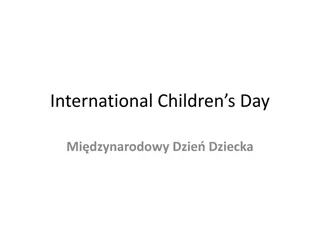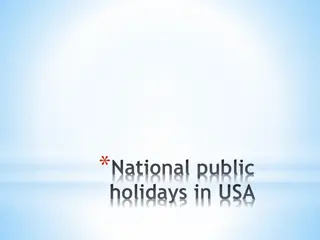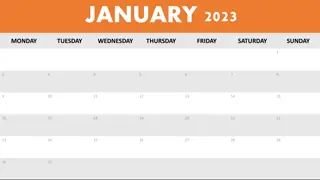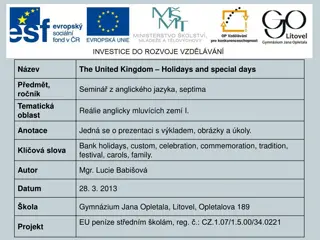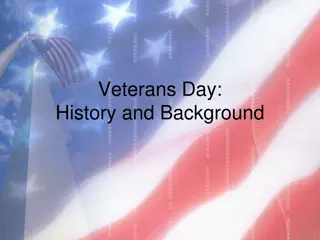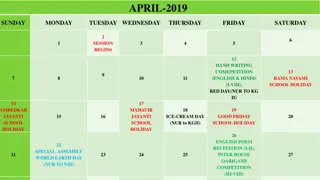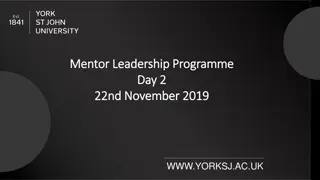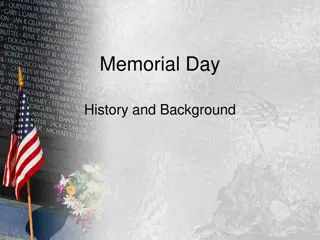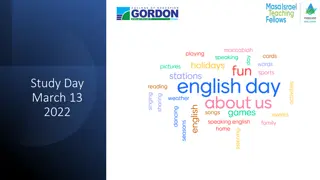
Physican Advocacy Spectrum - Evaluating SPA-1 Elective
This study evaluates the effectiveness of the Spectrum of Physician Advocacy (SPA-1) elective at BUSM by measuring students' attitudes, knowledge, and confidence around health advocacy. The program aims to train students to understand social determinants of health and intervene directly to address social issues affecting patients' health.
Download Presentation

Please find below an Image/Link to download the presentation.
The content on the website is provided AS IS for your information and personal use only. It may not be sold, licensed, or shared on other websites without obtaining consent from the author. If you encounter any issues during the download, it is possible that the publisher has removed the file from their server.
You are allowed to download the files provided on this website for personal or commercial use, subject to the condition that they are used lawfully. All files are the property of their respective owners.
The content on the website is provided AS IS for your information and personal use only. It may not be sold, licensed, or shared on other websites without obtaining consent from the author.
E N D
Presentation Transcript
Lessons from the Spectrum of Physician Advocacy-1 (SPA-1) Free Time Elective Katelyn Carey BUSM 17 MPH Karen Foo BUSM 17 Genevieve Guyol BUSM 17 Jawad Husain BUSM 17 Janine Petito BUSM 17 Molly Zielenbach BUSM 16 MD Johnna Murphy MPH Megan Sandel MD MPH
Introduction BMC aims to provide exceptional care, without exception to a 59% underserved population1 BU Advocacy Training Program (buATP) started 10 years ago to train BUSM students to: Understand the the social determinants of health on a theoretical level Intervene directly to address the social issues disrupting a patient s health at the individual or community levels Many organizations have called for incorporating advocacy as part of the core competency of professionalism in medical training2 This study sought to evaluate the effectiveness of our Spectrum of Physician Advocacy (SPA-1) elective and measure students attitudes, knowledge, and confidence around health advocacy
Student-Led, Faculty-Mentored SPA -1 Elective 7 Didactic Sessions Advocacy Project Intro to Advocacy/Public Health Community-based activity Presentation at final potluck Street Violence Addiction & Harm Reduction Correctional Health Didactic Session Format Early Childhood Care 1. Introduction of Content 2. Expert Speaker 3. Group Discussion/Activity Immigrant/Refugee Health Health Insurance/Policy Reform
Study Design Survey Design: Demographics Study Group: 24 first-year medical and dental students enrolled in SPA-1 elective Four main advocacy categories: 1. Self-reported advocacy attitudes Control Group: 32 first-year medical students not enrolled in SPA-1 2. Self-reported advocacy knowledge 3. Objective advocacy knowledge 4. Confidence in advocacy skills Survey Administration: Study Group: Beginning and end of SPA-1 Control Group: Single administration Analyses: - - Pre- vs. post-intervention: Paired t-tests Pre-intervention vs. control group: Fisher s exact or chi-square
Results: Demographics
Results: Pre-vs. Post- Intervention Attitudes
Results: Pre-vs. Post-intervention Knowledge
Results: Pre-vs. Post- Intervention Confidence
Discussion Improvement in attitudes, knowledge, and skills indicates that a student-led, faculty-mentored program is an effective method of advocacy education at BUSM Similar baseline objective knowledge, but difference in confidence, in pre- intervention compared to control suggests that all students could benefit from this curriculum Limitations: small sample size, single institution, single time point controls
Next Steps Investigate strategies to incorporate advocacy education into the BUSM core curriculum, while maintaining a learner-centered model Characterize and address interests of BUSM students not currently engaged in advocacy programming
Reflections on a Student-Led, Faculty- Mentored Advocacy Elective The BU Advocacy Training Program provides: An opportunity to learn about social issues that shape our patients lives Mentorship from experienced physician advocates A community of humanistic, socially conscious medical and dental students Valuable experience in leadership and teaching
Special Thanks To: Lauren Fiechtner MD MPH Chen Kenyon MD MSHP Bob Witzburg MD Suzanne Sarfaty MD Daniel Dworkis MD PhD Michelle Sia DO Jessie Gaeta MD Michael Siegel MD Ana Gregory Ed.M. Anita Knopov (BUSM 18)
References 1. About BMC. Boston Medical Center. N.p., n.d. Web. 25 May 2016. <http://www.bmc.org/about.htm> 1. Croft D, Jay SJ, Meslin EM, Gaffney MM, Odell JD. Perspective: Is It Time for Advocacy Training in Medical Education? Acad Med. 2012;87(9):1165 1170. doi:10.1097/ACM.0b013e31826232bc. 1. Belkowitz J, Sanders LM, Zhang C, et al. Teaching Health Advocacy to Medical Students: A Comparison Study. J Public Health Manag Pract. 2013;33431(00):1 10. doi:10.1097/PHH.0000000000000031. 1. Bhate TD, Loh LC. Building a Generation of Physician Advocates. Acad Med. 2015;90(12):1. doi:10.1097/ACM.0000000000000841. 1. Dharamsi S, Ho A, Spadafora SM, Woollard R. The physician as health advocate: translating the quest for social responsibility into medical education and practice. Acad Med. 2011;86(9):1108 13. doi:10.1097/ACM.0b013e318226b43b. 1. Dworkis DA, WIlbur MB, Sandel MT. A Framework for Designing Training in Medical Advocacy. Acad Med. 2010;85(10):1549 1550. doi:10.1016/0002-9610(92)90118-B.
Self-Reported Advocacy Knowledge
Confidence in Advocacy Skills


